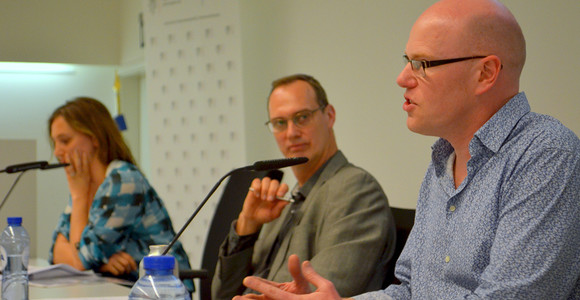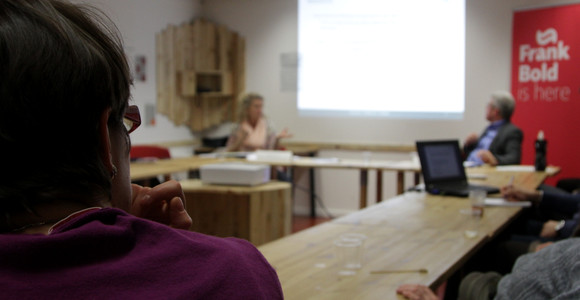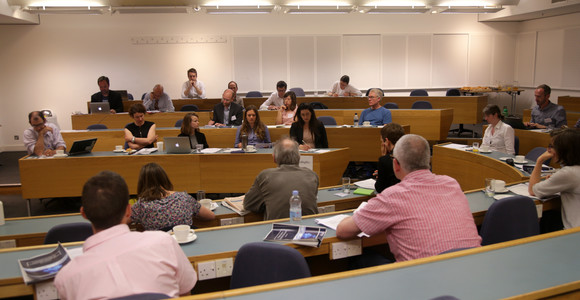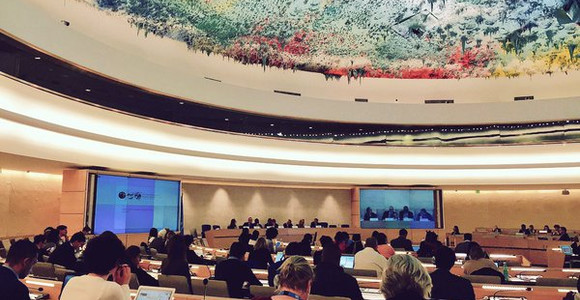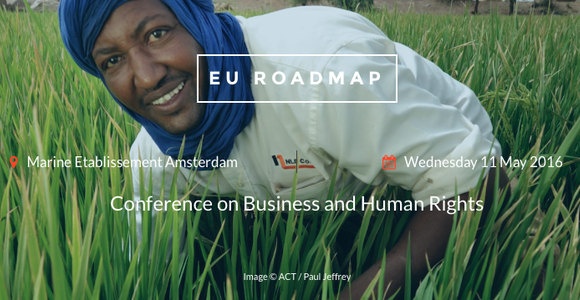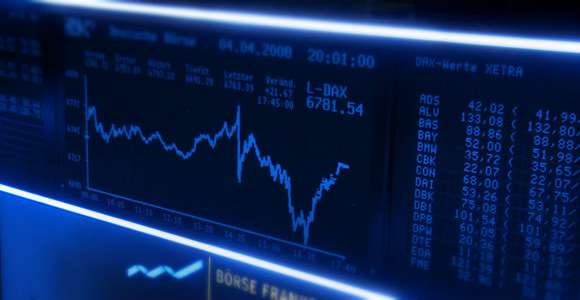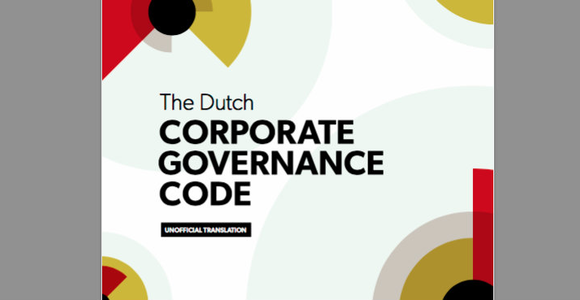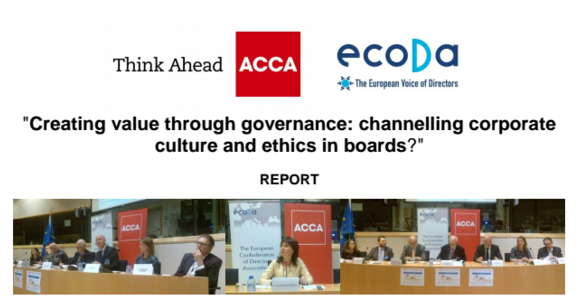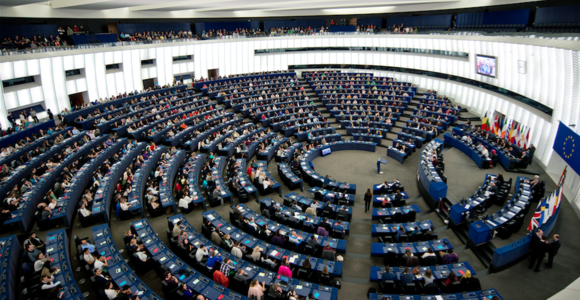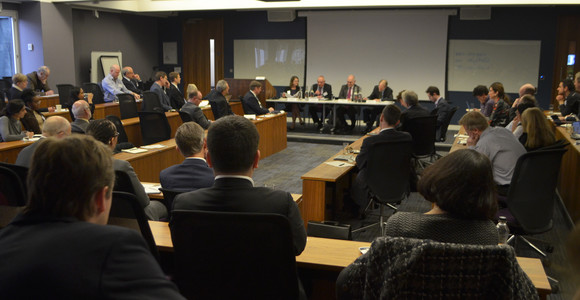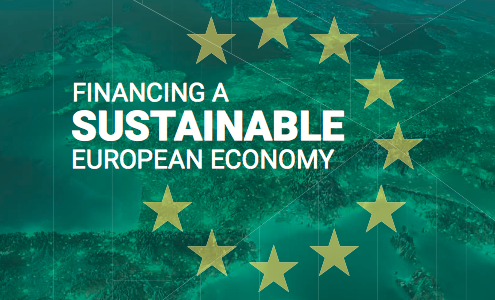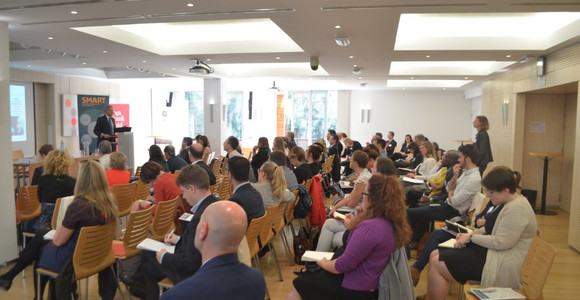Open Stakeholder Meeting on Non-Financial Disclosures
On 18 October, the European Commission will host an open stakeholder meeting on non-financial disclosures organised by DG FISMA (Financial Stability, Financial Services and Capital Markets Union).
Filip Gregor, Head of the Responsible Companies Section at Frank Bold, will speak at the event and present the Alliance for Corporate Transparency Project. The Alliance is collaborative research project of leading European civil society organisations that will assess if the 1000 largest EU companies are disclosing key information necessary for understanding their risks and impacts on the environment and society, as required by the EU Non-financial Reporting Directive.
The project will draw from international standards and leading reporting frameworks to determine what information is commonly understood to be essential and material in this respect. The results will help companies to make their ESG disclosure more meaningful and will also provide crucial missing information that policy-makers need for the development of the EU legislative framework for corporate reporting and the creation of a sustainable finance system.
The EU Non-financial Reporting Directive requires approximately 6000 large European companies to disclose a certain set of environmental and social information in their annual reports. These reports must cover matters relating to “as a minimum, environmental, social and employee matters, respect for human rights, anti-corruption and bribery matters”, including a description of the company’s policy towards these matters, any risks related to them, and the outcome of the policies pursued.
After the publication of a set of non-binding guidelines for non-financial disclosure in June 2017, the EU-wide reporting requirements came into force in 2018. Further development of this new reporting framework has become vital in the EU Commission’s Action Plan on Sustainable Finance, a high-level initiative that aims to reorient capital flows towards sustainable investments and foster transparency, long-termism and resilience in finance and corporate governance with respect to risks stemming from climate change, environmental degradation and social issues. This Action Plan include commitments to specify the Directive’s requirements, especially in the environmental area, develop and integrate a sustainability taxonomy in financial markets. The Commission will revise the non-binding guidelines by Q2 2019 concerning climate mitigation and adaptation and will be considering specifications and recommendations for the social and governance areas for the next European Commission (that will take office after the EU elections in May 2019).
The open stakeholder meeting will allow the European Commission to gather feedback and advice from a wide variety of actors from both the corporate world and civil society.The morning session will focus on climate-related disclosure specifically, while the afternoon session will relate to the implementation of the Non-Financial Reporting Directive more generally. There are 160 places are available at the event, with a maximum of one representative per organisation, though the entire meeting will be available to watch live online. Registration is obligatory and further details can be found at the following link: https://ec.europa.eu/info/events/finance-181018-non-financial-disclosures_en.
High Level Conference on the Future of Corporate Reporting
On 30 November, Vice-President of the European Commission Valdis Dombrovskis will chair a high-level conference on the future of corporate reporting in a digital & sustainable economy. It comes as part of the wider fitness check carried out on the state of corporate reporting regulation in the EU, which aims to:
- Assess whether the current framework is relevant and consistent with other EU policies
- Review existing legislation, such as the Non-Financial Reporting Directive, as is required by the legislation itself
- Assess whether the current framework is fit for new challenges
Contributions were sought between March and July 2018 from a wide cross-section of society, including financial institutions, companies, regulators, employees among others, with over 300 responses eventually received.
The conference arose out of a recognition of the growing interest in corporate responsibility and increasing demand to link companies’ strategy, governance, environmental performance and social responsibility to their long-term financial performance and value creation.
The Commission accepts that a company's value is increasingly determined by intangible factors that cannot easily be explained on a purely financial statement, while investors continue to demand more information about the operating practices of the companies they are invested in. At the same time, digitalisation, fast technological developments and a desire to streamline information which is at present largely only available in a fragmented form have led the Commission to reassess whether the current framework is still useful, and what changes are necessary to update it for the modern era.
The event aims to allow key players such as regulators and important members of civil society to share their views on the future of corporate reporting, gathering senior representatives from the financial sector, civil society, public administrations and universities.
The event will be made up of a series of keynote speeches and four panel sessions, the first of which will pose the question of whether corporate reporting is still fit for purpose. This will be followed by a session examining whether accounting rules set out for EU capital markets are coherent with the EU policy objectives of promoting long-term sustainable investment. The third session will explore the progress made towards broader public discourse of sustainability issues, and the final one will look at whether companies should ‘embrace the digital revolution’ through their reporting.
The conference is open to all and registration is possible through the following link: https://ec.europa.eu/info/events/finance-181130-companies-public-reporting_en
